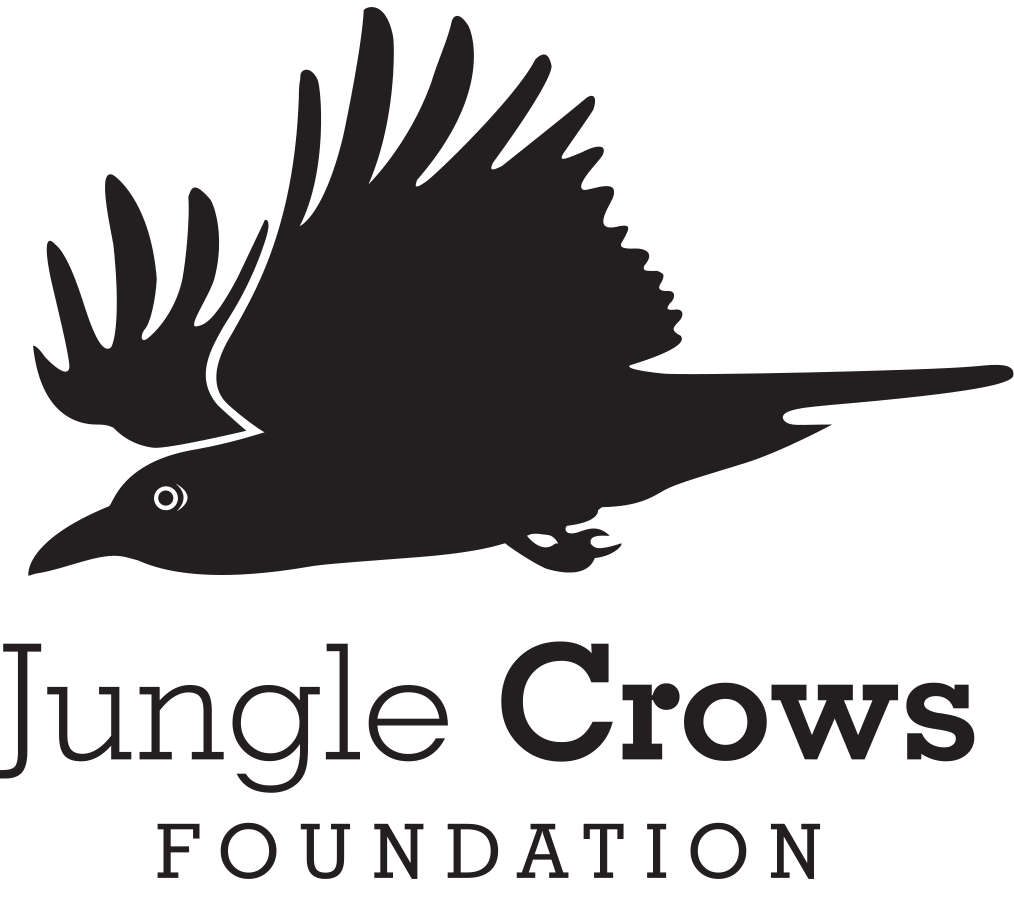Who Wants to Change the World?
by Paul Walsh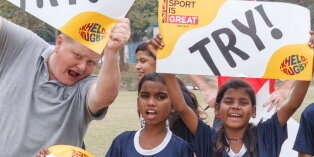 (Article first published in The Telegraph, Calcutta and reproduced here with permission)“Want to change the world? Invest in an adolescent girl.” - the United Nations Foundation.
(Article first published in The Telegraph, Calcutta and reproduced here with permission)“Want to change the world? Invest in an adolescent girl.” - the United Nations Foundation.
Over the winter our Jungle Crows Foundation ran winter rugby camps for children in Calcutta, Saraswatipur and Bangalore. In Calcutta this was the 11th year of the camp. Combined more than 1800 children took part, on the biggest day in Calcutta we had more than 900 children out playing on the Maidan. Looked after by more than 80 volunteer Coaches and fed each day of the 11 mornings a hearty breakfast by one of 14 local hotels and restaurants who stepped forward to support the initiative. Get along to junglecrows.org and you can watch a short film about it.
Over the course of the camp we too realised that girls are pretty damn important in facilitating change. I mean it wasn't the sudden dawning of something pretty obvious, but a sense that involving more girls in our work really did make a difference to the experience for everyone. We tried hard to get more girls to this year’s camp, organising safe transport, reassuring parents. And it worked partly, 35% of the children playing each morning were girls, this was certainly an increase on previous years and you could sense it changed the atmosphere of the camp.
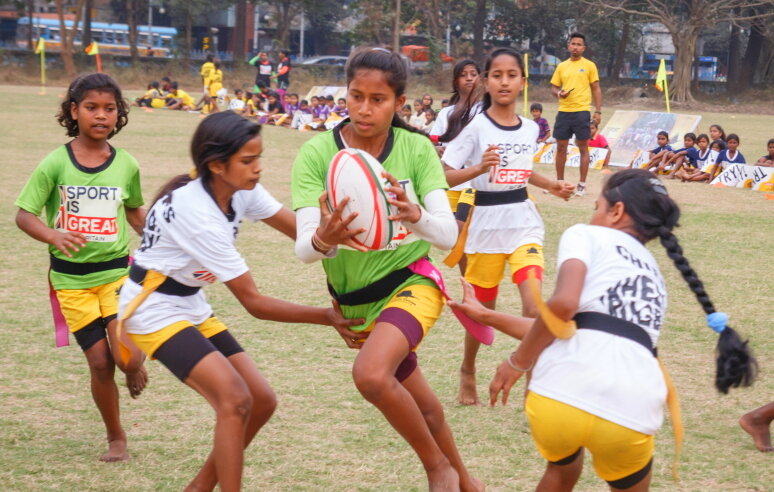
This year in the Jungle Crows we are driving forward with an initiative we are calling the Year of Play. The same film referenced above tells you more about that, but the first objective of this programme is to involve more and more adolescent girls in our work. The UN says girls are the key to, “eliminating poverty, achieving social justice, stabilizing the population, and preventing foreseeable humanitarian crises.” That’s quite a lot of responsibility, but having been brought up by a young Mum on her own I can also report how it’s not an unrealistic expectation. We all know girls in our society face many more hurdles in growing up than boys, whether it is marriage at too young an age, isolation due to community customs, denial of education or the threat of trafficking. Most of us will be able to recount experiences where we have at least heard of young girls denied their full chance in life. And this denial of rights is bad for all of us, for all of society. Girls are real change makers in our world, they are the catalyst around which a better world can be created. Today there are more than 600 million girls aged 10-19 growing up in developing countries, just imagine the change they could create if given the right chances.
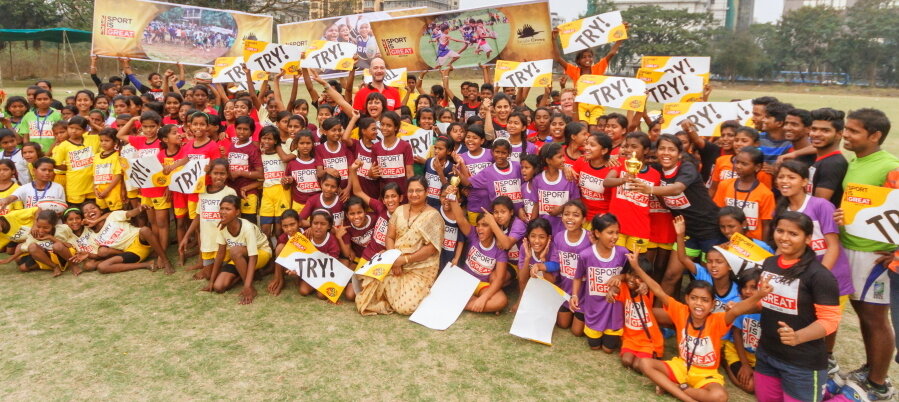
We reckon PLAY and sport can be pretty powerful in encouraging and supporting this change. This is what our Khelo Rugby Community programme is all about. Working with children directly in the communities they live in. Community support is essential to any change and if we want to get more girls playing we need to have the support of their families, elders and schools. One way we can change attitudes is by involving girls in high profile visible events of which they are the centre of attention. This was why when we had the chance to partner with the British High Commission for a Sport is GREAT event we chose to do girls rugby. It really was an incredible day with 160 under 14 girls all playing tag-rugby to a very high standard. The final was particularly close and featured a mixed Calcutta team versus a team from Saraswatipur – the tea garden village we work in near Siliguri. The girls from Saraswatipur won, which was a super achievement for them and really showed how they have bloomed with Khelo Rugby.
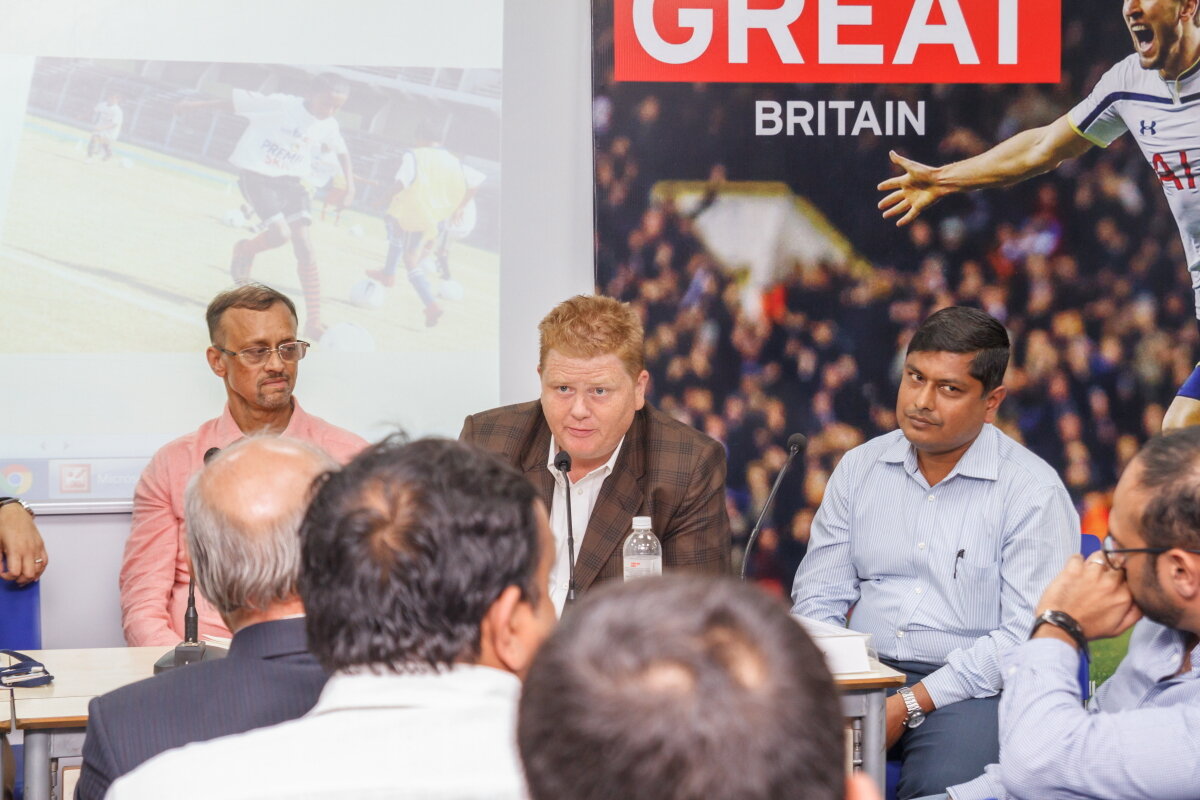 After the girls rugby myself and the Deputy High Commissioner Scott Fursendonn-Wood raced over to the British Council where we were part of a panel discussion on how sport can play a central role in social development. The debate was high quality and really showcased some of the great social development work going on in Calcutta with sport at its centre; from engaging with school drop outs through Kolkata Goalz to the huge impact of Special Olympics Bharat with so many positive stories in between.
After the girls rugby myself and the Deputy High Commissioner Scott Fursendonn-Wood raced over to the British Council where we were part of a panel discussion on how sport can play a central role in social development. The debate was high quality and really showcased some of the great social development work going on in Calcutta with sport at its centre; from engaging with school drop outs through Kolkata Goalz to the huge impact of Special Olympics Bharat with so many positive stories in between.
The benefits of play and sport are well known to most parents and in so many ways it is even more important that we work to extend these benefits to include all girls. I think we all know how play and physical activity is a key to a healthier life now and as children grow up. Research has also shown that active children learn better, develop keener memories and have better concentration. Play boosts self-confidence, lessens stress, helps us make new friends, develops team work, is good for goal setting, and I can go on!
And so this is why in the Jungle Crows we've adopted the hashtag #PowerOfPlay for 2016, please do use it if you think PLAY can be a positive in children’s lives. And for all the girls in your life please encourage them to get out and play, and then you too can be a part of supporting 600 million girls who are going to transform our world.

